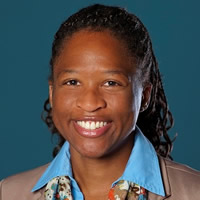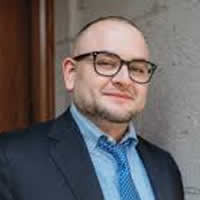Key issues of inquiry for this network include the influence of poverty on healthy transitions to adulthood, including educational attainment, labor force participation, and family formation; positive youth development strategies with disadvantaged populations; the role of policies and programs (e.g., human capital development; child welfare, including foster care and programs for youth aging out of care) in promoting successful transitions to adulthood for disadvantaged youth.
Co-Leads
Carolyn Heinrich
Email:
carolyn.j.heinrich
Carolyn Heinrich is the Patricia and Rodes Hart Professor of Public Policy, Education, and Economics at Vanderbilt University. Heinrich’s research focuses on education, workforce development, social welfare policy, program evaluation, and public management and performance management. She works directly with federal, state and local governments in her research to improve policy design and program effectiveness and also collaborates with nongovernmental organizations (such as the World Bank, UNICEF and others) to improve the impacts of economic and social investments in middle-income and developing countries.
Members
Stephanie L. Canizales
Stephanie L. Canizales is an Assistant Professor of Sociology at the University of California at Merced. Stephanie specializes in migration and immigrant incorporation, children and youth, inequality, poverty, and mobility, race/ethnicity, and organizations. Her book project, entitled Sin Padres, Ni Papeles, systematically examines why undocumented, unaccompanied Central American and Mexican youth migrate to Los Angeles, California, and how they incorporate into school, work, family, and community life as they come of age without parents. Her next project will more closely analyze youths’ experiences as labor migrants, their entry into and participation in the U.S. workforce and economy, and to further investigate the strategies youth employ to navigate poverty and mobility in a timely manner. She specializes in migration and immigrant integration, children and youth, inequality, poverty, mobility, and race and ethnicity.
For the 2020–2021 IRP Scholars-in-Residence Program she chose to visit the Center for Population Inequality and Policy at the University of California, Irvine.
Stephanie L. Canizales was a 2018–2019 IRP Emerging Poverty Scholars Fellow.
Shaun M. Dougherty
Shaun Dougherty is an Associate Professor of Public Policy and Education at the Peabody College of Education & Human Development, Vanderbilt University. His work focuses on applied quantitative analysis of education policies and programs, including career and technical education, with an emphasis on understanding how PreK-12 policies and programs impact student outcomes. In particular, he emphasizes how policies and practices affect educational equity related to race, class, gender, and disability. Dougherty is a former high school mathematics teacher and assistant principal. He has conducted policy research for Center for Education Policy Research at Harvard University, the Massachusetts Department of Elementary and Secondary Schools, and the Thomas B. Fordham Institute.
Melody Harvey
Melody Harvey is an Assistant Professor of Consumer Science at University of Wisconsin–Madison. She is also a Faculty Affiliate at La Follette School of Public Affairs. She is a social scientist who studies how public policies affect financial capability among economically vulnerable populations. Her current research encompasses three main domains: (1) assessing the effects of K–12 financial education policies on youth and young adults’ financial outcomes across different socioeconomic groups; (2) investigating how financial regulations affect alternative financial services use; and (3) examining heterogeneities in consumer policy implementation. Previously, she was a National Poverty Fellow at IRP (2018–2020), which she served in residence at OPRE in Washington, DC.
Adrian H. Huerta
Adrian H. Huerta is an Assistant Professor of Education in the Rossier School of Education at the University of Southern California. His research focuses on boys and young men of color, college access and equity, and gang-associated youth. During his fellowship, he is focusing on former gang-associated individuals who have gone on to earn a postsecondary education degree or credentials to understand what and who contributed to their successes. He hopes to help education and social service personnel understand how to better support gang-associated individuals throughout the educational pipeline. Dr. Huerta is a past recipient of the American Educational Research Association (AERA) Minority Dissertation Fellowship and earned his PhD in Education at UCLA.
Adrian Huerta was a 2019–2020 IRP Emerging Poverty Scholar Fellow.
Twitter: @AdrianHuertaPhD
Waldo Johnson, Jr.
Waldo E. Johnson, Jr., is an Associate Professor School of Social Service Administration and Faculty Affiliate of the Center for the Study of Race, Politics and Culture at the University of Chicago. He is Principal Investigator for the Chicago Parenting Initiative Evaluation Study and he is examining the physical and mental health statuses of disconnected African American males in the South Side Health and Vitality Studies (SSHVS). Johnson is a member of the Ford Foundation Scholars Network on Masculinity and the Wellbeing of African American Males; ACF’s Welfare and Economic Self-Sufficiency Technical Working Group; 2025 Campaign for Black Men and Boys; and Co-Chair of the Illinois Juvenile Justice Research and Information Consortium, Illinois Juvenile Justice Leadership Council.
Jenny Nagaoka
Jenny Nagaoka is the deputy director of the University of Chicago Consortium on School Research. Nagaoka’s research interests focus on policy and practice in urban education reform, particularly developing school environments and instructional practices that promote college readiness and success. Nagaoka’s current work at the Consortium includes directing a project funded by the Bill & Melinda Gates Foundation to develop frameworks and tools for the development of early warning and college readiness indicator systems, a study of the role of teachers and classroom context in developing students’ academic skills, academic mindsets, perseverance, and learning strategies, and a study of rigorous instruction in Chicago high school classrooms.
David J. Pate, Jr.
David Pate ‘s research projects involve the use of qualitative research methods to examine the relationship of non-custodial fathers and their interaction with their children, the child support enforcement system, corrections, and the impact of social welfare policy on the well-being of African American adult males and their families. Prior to entering the world of academia, he was a practicing social worker for 16 years in the areas of direct practice, administration, and policy advocacy. This professional experience has allowed him to develop an integrative approach to the analysis of his scholarly activities.
Clark Peters
Clark Peters is an Associate Professor at the University of Missouri School of Social Work. His work focuses on helping vulnerable young people – especially individuals experiencing state care – successfully transition to adulthood. He also examines child welfare services and judicial oversight of dependency and delinquency cases. Dr. Peters works closely with the Annie E. Casey Foundation’s Jim Casey Youth Opportunities Initiative (JCYOI). He recently examined asset building for young adults aging out of foster care and is currently working on a project to assess enhancements to JCYOI’s asset-building activities. Dr. Peters has also examined and presented on increasing the level of “normalcy” of young people in state care, including providing access to drivers’ licenses, dental care, and financial education.
Rachel Rosen
Rachel Rosen is the Co-Director of the MDRC Center for Effective Career and Technical Education (CTE), and a Research Associate at MDRC. Her work focuses on conducting impact evaluations of CTE programs for secondary school students. She is currently the Co-PI of MDRC’s IES-funded evaluation of the NYC P-TECH 9-14 schools, which are 6-year high schools where students can earn both a high school diploma and a free associate’s degree at the same time. Each school also has an industry sponsor who helps provide work-based learning experiences and whose work the associate’s degrees are related to. She is also the impact lead on the NextGeneration: California Partnership Academies study, which is a replication study of MDRC’s well-known evaluation of the Career Academies model. She is particularly interested in questions related to the intersection of equity and CTE, as well as how CTE helps students navigate transitions between the secondary, postsecondary, and workforce domains. She earned her PhD from Teachers College, Columbia University.
Jennifer M. Silva
Jennifer Silva is an Assistant Professor of Sociology at Bucknell University. As a sociologist of culture and inequality, she investigates the relationship between systems of inequality – race, social class, and gender – and systems of meaning. Her recent book, Coming Up Short: Working-Class Adulthood in an Age of Uncertainty (Oxford, 2013), examines how working-class young men and women navigate the transition to adulthood in a world of disappearing jobs, soaring education costs, shrinking support networks, and fragile families. Previously, Silva was a postdoctoral fellow at Harvard University, where she worked in the Saguaro Seminar, exploring the impact of economic insecurity on social connectedness and civic engagement.














